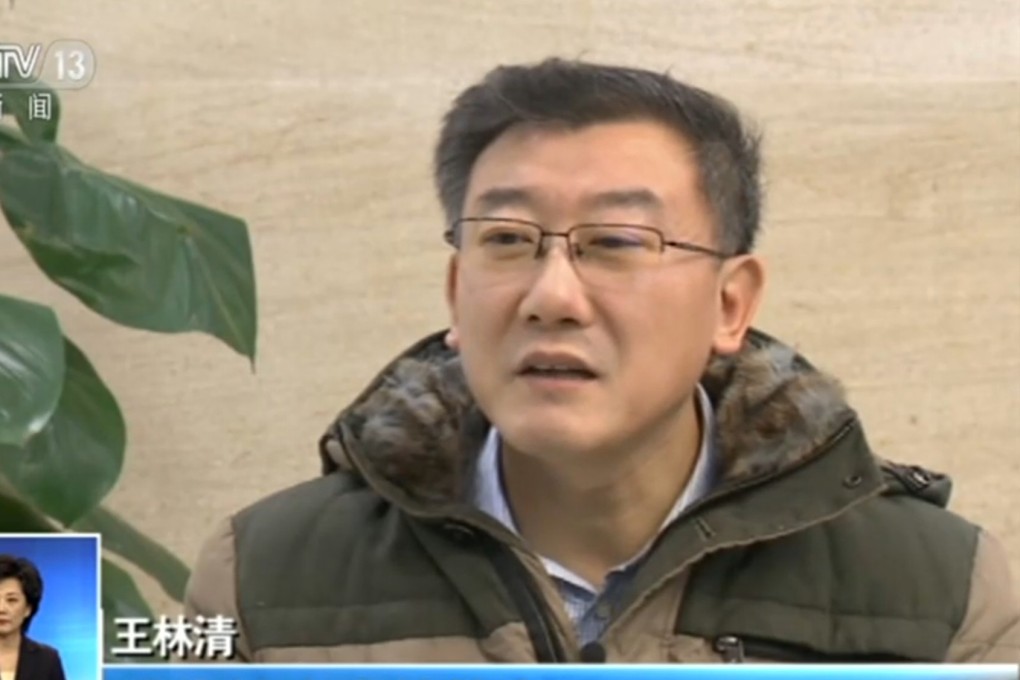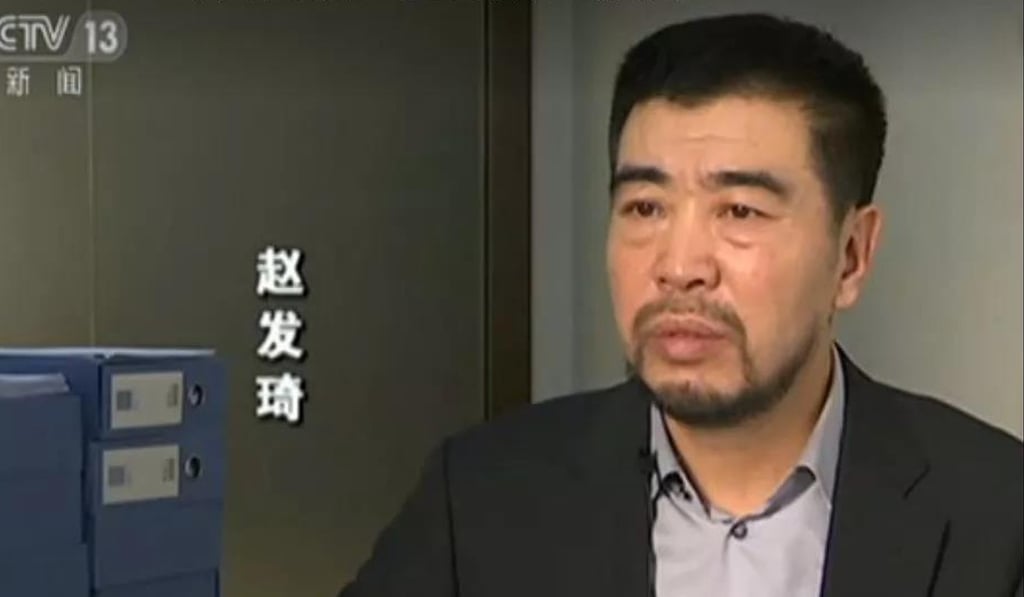China’s whistle-blower judge in custody of anti-corruption agency and facing accusations of theft and fabrication
- Wang Linqing is at the centre of scandal involving missing court papers
- Businessman Zhao Faqi is detained for further investigation

The Chinese supreme court judge at the centre of a judiciary scandal was on Friday accused of theft and fabrication, state media reported, after police in Beijing wrapped up their investigations.
Wang Linqing, the assistant judge of the Supreme People’s Court, is now in the custody of Beijing city’s anti-corruption agency, Xinhua reported.
The scandal involved the disappearance of court papers in a mining rights case in which the plaintiff, businessman Zhao Faqi, was in police custody and under investigation.
With Wang detained by the anti-corruption agency, his access to legal counsel was limited until his transfer to the custody of prosecutors, according to Chinese law.

Wang, 45, made headlines in December as the person who exposed the disappearance of documents from his own office.